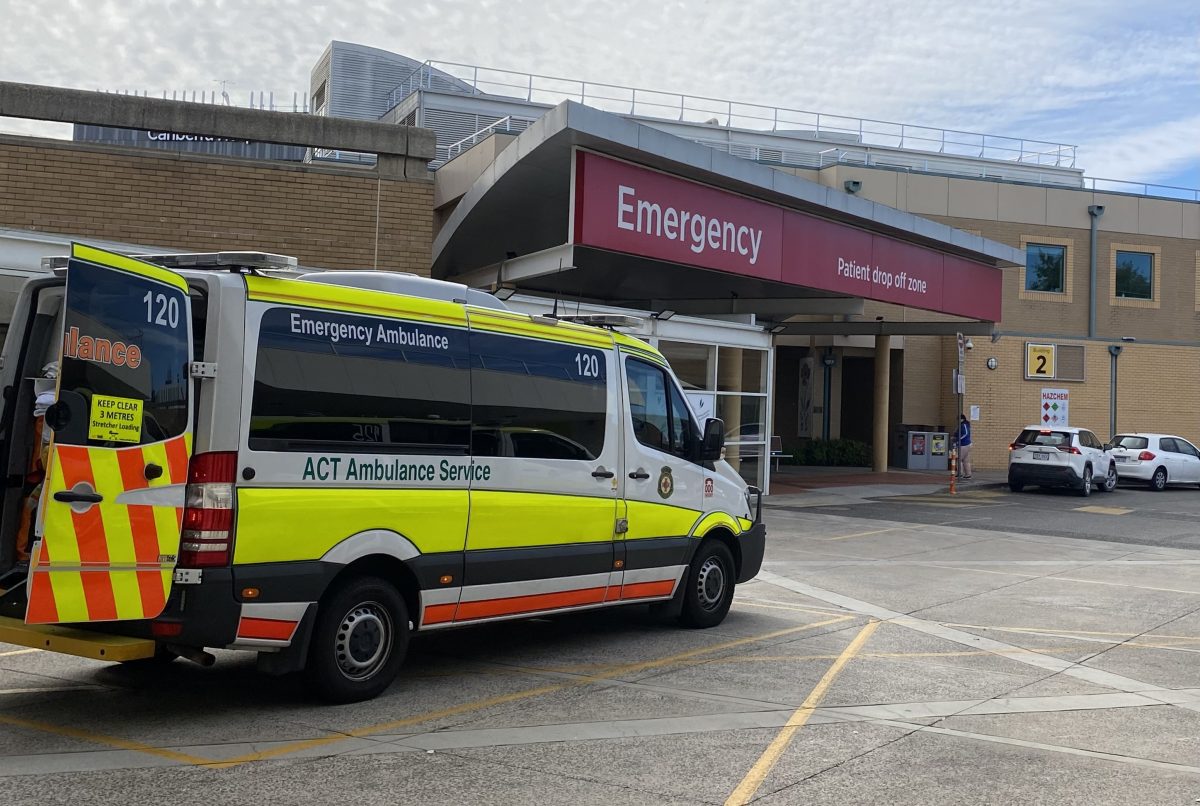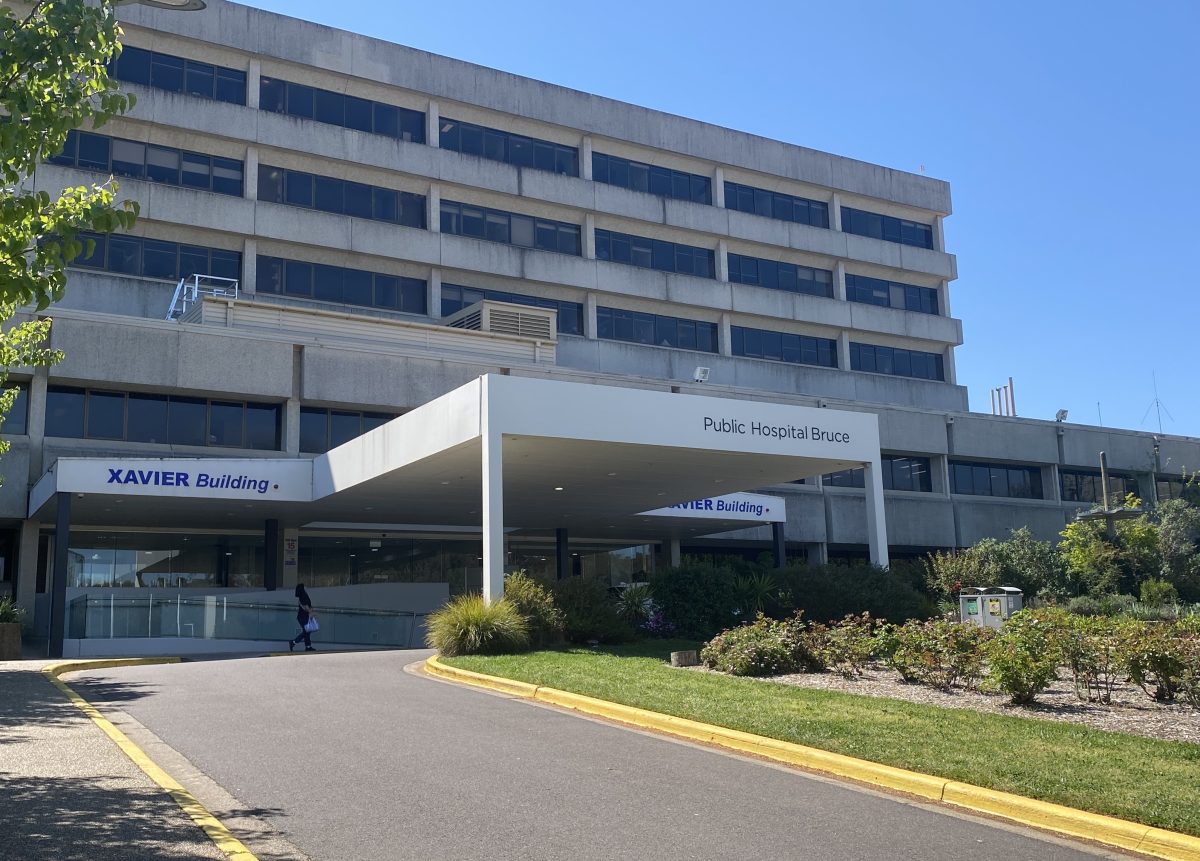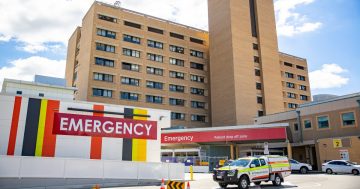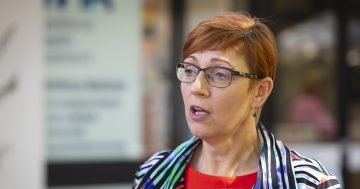
Specialist medical training issues have cropped up at multiple units at Canberra Hospital. Photo: Claire Fenwicke.
The Health Minister has assured the community that specialist medical training accreditation for several Canberra Hospital units are back on track.
But the government has been criticised for leaving certain units “in crisis for far too long”, and for allowing things to get so bad in the first place.
Hospitals need training accreditation from various colleges (depending on the specialty) to provide educational opportunities for young doctors, which can in turn encourage them to stay in their training hospital rather than moving elsewhere.
The hospital’s obstetrics and gynaecology unit was put on a six-month provisional accreditation in June, plastic surgery had its accreditation revoked earlier this year, and its fetal medicine unit had its training accreditation suspended last year.
Health Minister Rachel Stephen-Smith also recently informed the Legislative Assembly work was being undertaken with North Canberra Hospital to lift the provisional accreditation status for its obstetrics and gynaecology unit, which had been imposed since May, 2022 when the hospital was run by Calvary Health Care.
This was due to limited education opportunities and supervision of trainees at the time.
All units now appear to be on track to offer education once more.
Ms Stephen-Smith said the fetal medicine unit had recently recruited a lead clinician for the maternal fetal medicine unit, while two senior sonographers had started work in July.
Two fetal medicine unit medical specialists had also returned to Canberra Health Services (CHS) in part-time roles.
“These arrangements, along with the continuation of the visiting medical officers, will support the ongoing delivery of clinical services and ensure quality fetal medicine services for women of the ACT and surrounding areas,” Ms Stephen-Smith said.
“It is expected the Fetal Medicine Unit will apply for training reaccreditation in 2024.”
Work has continued with the Royal Australian and New Zealand College of Obstetricians and Gynaecologists (RANZCOG) to get the obstetrics and gynaecology unit up to scratch to supply training. A divisional clinical director has been appointed to focus on the junior medical workforce.
Several locums have been engaged to supplement the workforce, with several recruitment drives bringing on more staff.
“These new staff members, who are due to start between now and early next year, include additional obstetrics and gynaecology consultants and more first-year trainees, unaccredited registrars and senior registrars,” Ms Stephen-Smith said.
“This recruitment also included an additional personal assistant for all obstetrics and gynaecology consultants to help reduce their administrative workload.”
CHS will receive RANZCOG’s progress report update on 11 December.

Training accreditation issues are also being worked through at North Canberra Hospital’s obstetrics and gynaecology unit. Photo: Claire Fenwicke.
As for the plastic surgery unit, a visit from the Canberra Region Medical Education Council (CRMEC) in May has spurred work to improve the junior medical officer experience. Ongoing discussions will determine when CHS can seek reaccreditation in this area.
Concerns have previously been raised for the child at risk health unit, housed in community paediatrics.
CHS received full five-year accreditation from the Royal Australasian College of Physicians (RACP) for advanced training and chapter of community health for this unit. It allowed two community child health advanced trainees to be educated each year, undertaking six-month placements.
The paediatric surgery unit lost its training accreditation in March 2022, but was reaccredited in May 2023.
“The loss of training accreditation is a matter that is taken very seriously, however this is a clear example of CHS taking decisive action when a problem has been identified,” Ms Stephen-Smith said.
Finally, RACP’s review of the Canberra Hospital cardiology training program in July highlighted the need for further consultants, especially in electrophysiology training.
A permanent electrophysiologist has since been employed, along with a visiting medical officer to perform these procedures two days a month.
An electrophysiologist specialist will also start work at Canberra Hospital in January, 2024.
The cardiology department has conditional accreditation at the moment, pending a progress report in six month and another site visit in a year.
Shadow Health Minister Leanne Castley said Ms Stephen-Smith was just “telling us something is happening”.
“No matter what spin the minister puts on this, the fact is that doctors, patients and nurses have had to wait far too long to see improvements,” she said.
“[In relation to cardiology], I hear things are actually getting worse.”
Ms Castley pointed to code yellow incidents as proof the system wasn’t improving.
“Why does it have to get to this point where many units are in trouble with their accreditation for this government to take action?” she asked.
“How many nurses have had to leave because they can’t stand the stress? How many nurses have taken early retirements because they just can’t stand it anymore?
“This is not good enough and it shouldn’t take this long.”


















